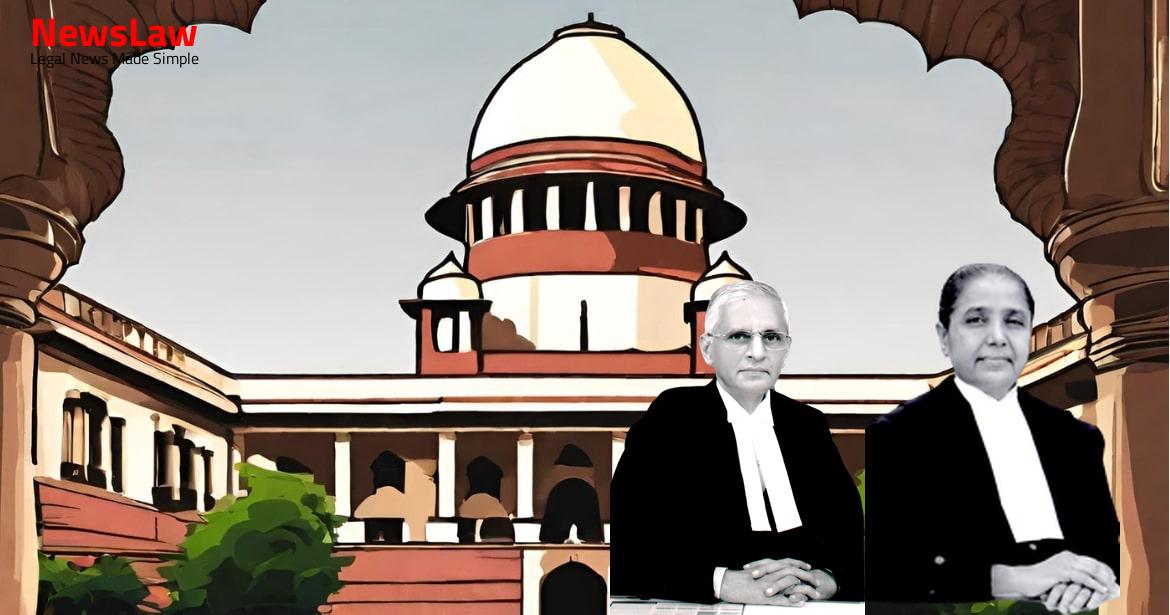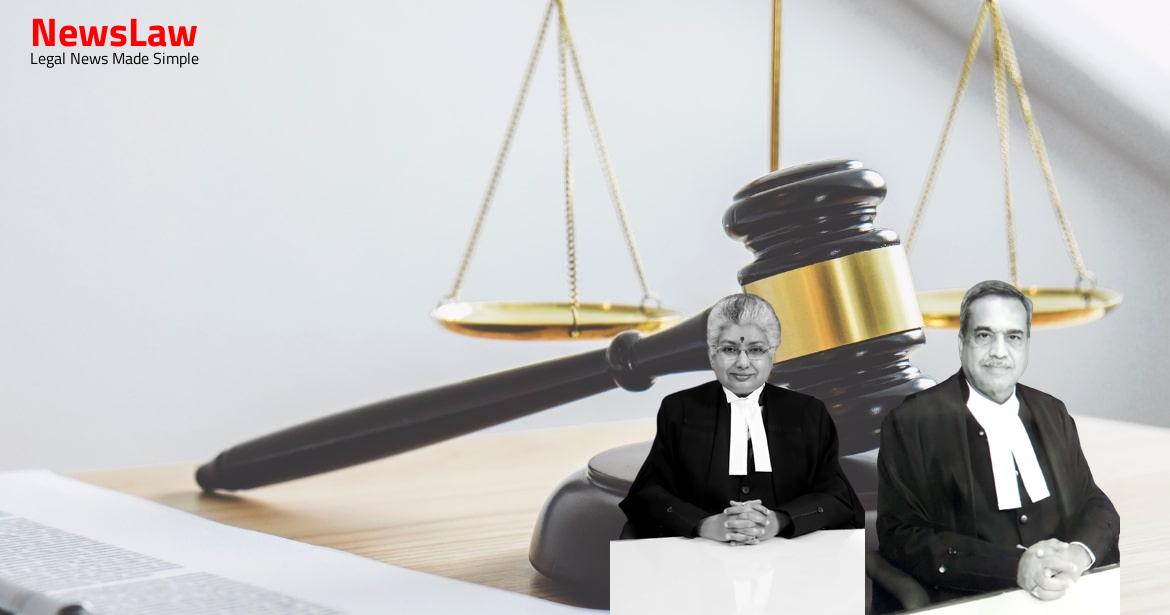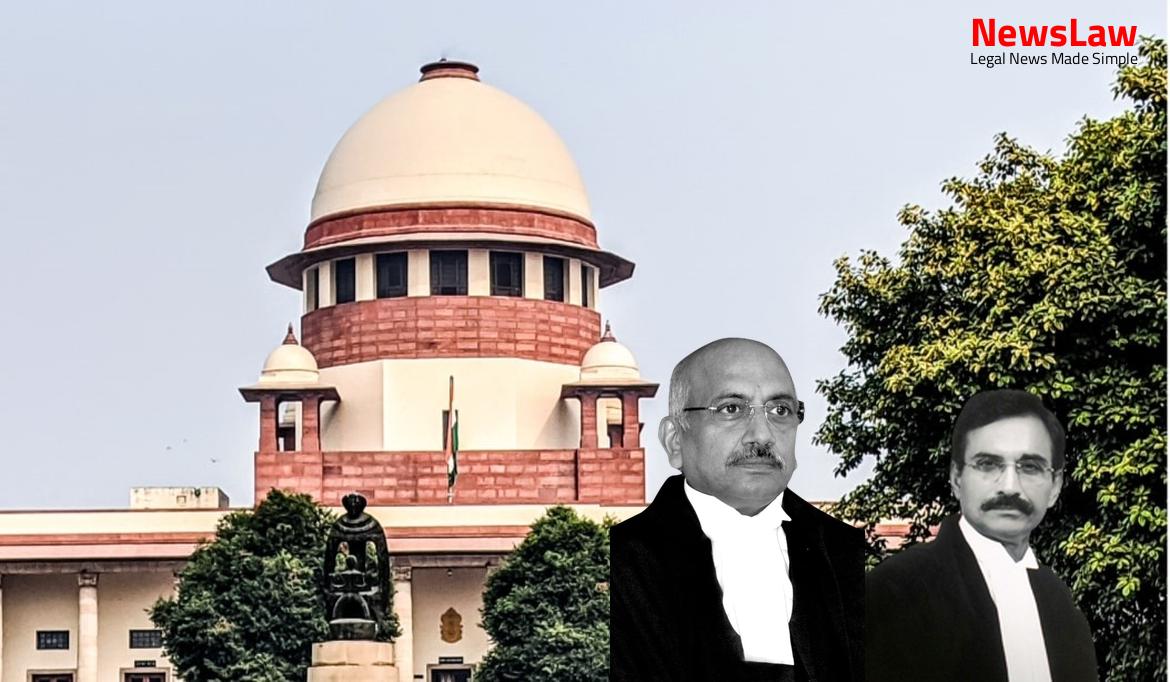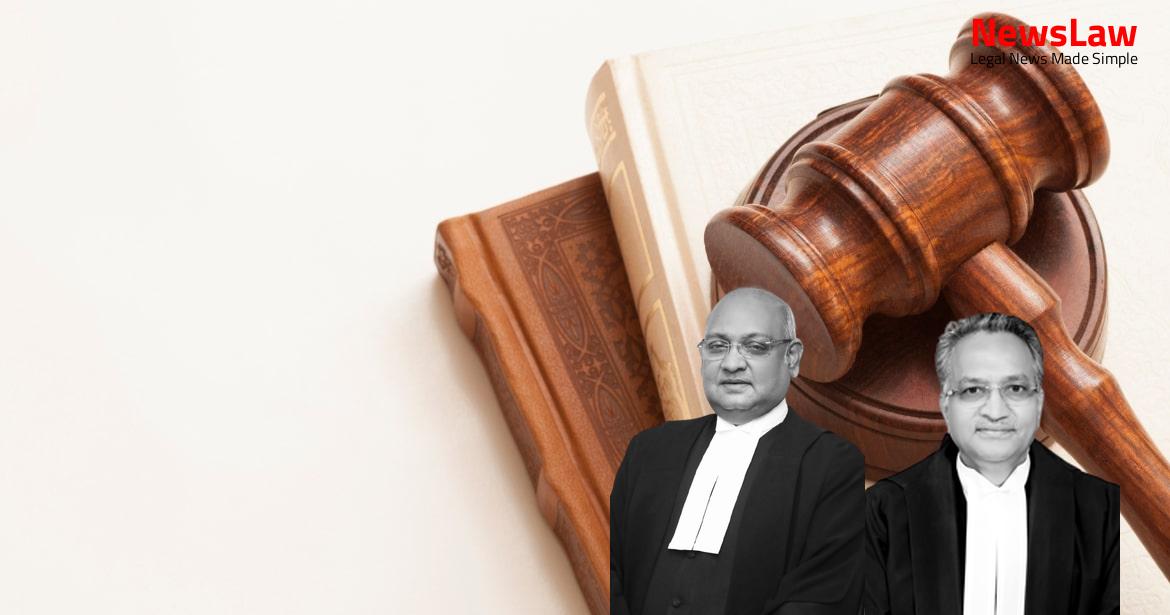Delve into the legal nuances of mental cruelty as a basis for divorce in a recent court case. The analysis focuses on the court’s interpretation of the evidence and its implications on family law. The judgment sheds light on the complexities of marital relationships and the legal criteria for dissolution based on mental cruelty. Explore how the court’s legal analysis shapes the outcome of the case and sets precedent for similar situations.
Facts
- The husband filed a petition under Section 13 of the Hindu Marriage Act seeking dissolution of marriage due to alleged rude behavior of the wife.
- The wife filed a petition under Section 9 seeking restitution of conjugal rights citing reasons for living separately without valid reasons.
- Various allegations and incidents between the parties led to legal notices, arrests, and strained relationships.
- The Trial Court framed issues based on the rival contentions and after examining evidence, dismissed the petition for dissolution of marriage.
- The husband claimed the wife’s behavior was intolerable and issued a legal notice which was not responded to.
- Both parties belonged to different communities and had an age difference of six to seven years.
- Marriage was solemnized in 2005 after the parties fell in love with each other.
- The wife denied the allegations of rude behavior and sought dismissal of the petition for dissolution of marriage.
- Witnesses examined did not relate to the allegation of the wife abusing the husband in front of students and co-workers.
- Husband did not present witnesses to prove quarrels starting 15 months into marriage leading to shifting of seven houses due to wife’s quarrelsome nature with neighbors.
- Husband filed Second Appeal under Section 100 of the Code of Civil Procedure before the High Court of Judicature at Madras in CMSA Nos.23 & 24 of 2016.
- High Court allowed the appeals, set aside the order for restitution of conjugal rights, and dissolved the marriage between the parties.
Also Read: Liability for Employee Actions in Contractual Disputes
Issue
- The High Court considered the appeals filed by the husband and reappreciated the evidence referred to before the Trial Court, upholding the Trial Court’s judgment.
- The substantial questions of law raised in the Second Appeal before the High Court included whether the marriage should be dissolved on grounds of mental cruelty, particularly in light of a false dowry harassment complaint and subsequent acquittal in the criminal case.
- The High Court found that the false criminal complaint by the wife, leading to the husband’s acquittal in the dowry harassment case, constituted mental cruelty as per Section 13(1)(ia) of the Hindu Marriage Act, and hence allowed the appeal.
- The arguments presented by the learned counsels for both parties were considered, and it was observed that the husband’s petition for dissolution of marriage was based on allegations of the wife’s quarrelsome behavior with neighbors, friends, and visitors.
Also Read: Supreme Court Upholds Rejection of Plaint Under Order VII Rule 11 of CPC: A Critical Analysis
Arguments
- Learned counsel has cited cases such as Naveen Kohli vs Neelu Kohli, Sanghamitra Ghosh vs Kajal Kumar Ghosh, and Samar Ghosh vs Jaya Ghosh to argue that in cases of prolonged separation, the marriage can be considered a fiction.
Also Read: Validity of Debt and Enforcement of Section 138 NI Act
Analysis
- The Trial Court and the First Appellate Court did not find sufficient evidence to prove the allegations made in the petition for divorce.
- The High Court, in its judgment, focused on a criminal case instead of the evidence related to the dissolution of marriage sought by the husband.
- The High Court’s consideration of the criminal case acquittal as automatic grounds for divorce was deemed improper.
- The husband’s initial petition for divorce was based on allegations of intemperate behavior, not linked to the criminal proceedings against him.
- The evidence presented in both the Trial Court and the First Appellate Court was extensively reviewed before rendering decisions.
- The High Court did not have grounds to re-appreciate the evidence but should have focused on substantial questions of law.
- The substantial questions of law raised did not qualify as such and instead allowed for re-appreciation of evidence, which was not within the High Court’s scope to do.
- Dissolution of marriage should be considered on a case to case basis
- No strict formula for deciding to dissolve a marriage
- Parties come from a conservative background where divorce is taboo
- Consideration for the well-being and future prospects of the female child born to the parties in 2007
- Differences between parties are normal wear and tear of marital life
- Dissolution of marriage not justified solely based on litigation and separation
- Restitution of conjugal rights considered in parallel
Decision
- The judgment dated 26.11.2010 in H.M.O.P Nos.13/2010 and H.M.O.P No.27/2008, affirmed in CMA No.90/2011 and CMA No.71/2011, is restored.
- The Appeals are allowed with no order as to costs.
- The very nature of the substantial questions of law framed by the High Court is not justified, and the conclusion reached is not sustainable.
- The judgment dated 20.07.2018 passed in CMSA Nos.23 & 24 of 2016 is set aside.
Case Title: MANGAYARKARASI Vs. M. YUVARAJ (2020 INSC 259)
Case Number: C.A. No.-001912-001913 / 2020



